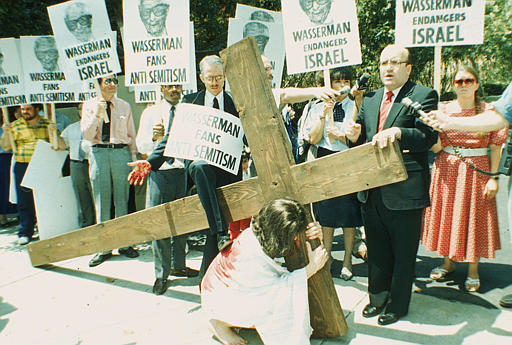The Last Temptation of Christ, a movie directed by Martin Scorsese and based on the book by Nikos Kazantzakis, provoked public outcry and denunciation from some conservative Christian groups due to its controversial portrayal of the life of Jesus. Universal Studios publicly defended its showing as a matter of First Amendment rights.
Christian groups denounced the film for controversial portrayal of Jesus
In 1955, when Kazantzakis’s book was published, the Greek Orthodox Church excommunicated him, and the Catholic Church banned the book.
The 1988 film adaption depicts Jesus being tempted by Satan to disavow his messianic nature, take Mary Magdalene for his wife, and live like a normal man. One controversial scene shows the newly married Jesus and Mary Magdalene having sex. Further controversy centered on the depiction of Judas as ethically strong and devout.
Some cities enforced bans on the movie
Chief among organizations protesting the movie were the American Family Association and Campus Crusade for Christ (CCC). A boycott was called, and some theater chains refused to show the film. Bill Bright, founder of CCC, offered to buy all prints of the movie in order to destroy them. Universal Studios responded with an open letter in newspapers across the country stating it would not succumb to these protests and thereby infringe upon the First Amendment rights of Americans to see the film. The cities of Savannah, Georgia; New Orleans, Louisiana; Oklahoma City, Oklahoma; and Santa Ana, California, however, were able to enforce bans on the movie, and the movie rental chain Blockbuster refused to carry it.
This article was originally published in 2009. Thurman Hart is an Adjunct Instructor of Political Science at New Jersey City University.

